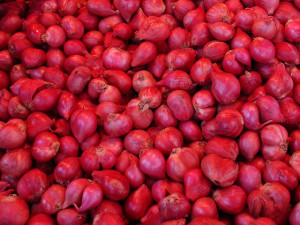
SICKLE CELL AND ONIONS
What would a kitchen be without the distinctively pungent smell and taste of onions filling out the flavors of almost every type of cuisine imaginable? Onions are vegetables that we tend to have them around in our kitchen and there a various kinds of onions, about 33 in total. Onions are native to Asia and the Middle East and have been cultivated for over five thousand years. Today China, India, the United States, Russian, and Spain are among the leading producers of onions.
Benefits:
- The phytochemicals in onions along with their vitamin C help improve immunity.
- Onions contain chromium, which assists in regulating blood sugar.
- For centuries, onions have been used to reduce inflammation and heal infections.
- Do you enjoy sliced onions with your food? If yes, rejoice! Raw onion lowers the production of bad cholesterol (LDL), thus keeping your heart healthy.
- A powerful compound called quercetin in onions is known to play a significant role in preventing cancer.
- Got stung by a honeybee? Apply onion juice on the area for immediate relief from the pain and burning sensation.
- Onions scavenge free radicals, thereby reducing your risk of developing gastric ulcers.
- Those bright green tops of green onions are rich in Vitamin A, so do use them often.
Read more: http://www.care2.com/greenliving/8-great-reasons-to-eat-more-onions
In animal studies, there is evidence that onion’s sulfur compounds may work in an anti-clotting capacity and help prevent the unwanted clumping together of blood platelet cells.
This allium vegetable has nevertheless been shown to provide important anti-inflammatory benefits. Onion’s antioxidants—including its hallmark flavonoid antioxidant, quercetin—also provide us with anti-inflammatory benefits. These antioxidants help prevent the oxidation of fatty acids in our body. When we have lower levels of oxidized fatty acids, our body produces fewer pro-inflammatory messaging molecules, and our level of inflammation is kept in check.
Onion has nevertheless been shown to help prevent bacterial infection. Along with its sulfur-containing compounds, the flavonoid quercetin contained in onion helps provide these antibacterial benefits.
http://www.whfoods.com
Keep on using onions to cook, as much as you can!







